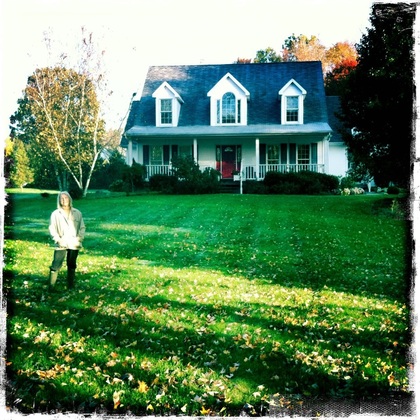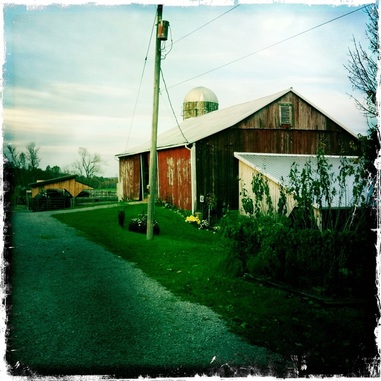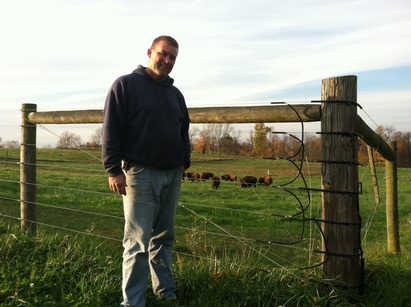
As a kid, I would stir the blueberry, pie mixture in hopes of sneaking a taste, now I'm writing down her secret recipe. Wandering through her elaborate gardens, I write down the name of flowers versus pretending to be a princess in a flowering courtyard. In place of her fantastical, bedtime stories, I question her about days gone by, life as a young girl on the farm and her days as a career woman.
We spent a glorious, deciduous-tree, fall day planting daffodils and tulips around her 4-acre property tucking them like hidden gnomes at the base of trees and woody nooks. Her simple but dynamic life has always fascinated me. Like the many books that adorn her library, she's a good read.

I asked Jeff, "What will it take to change the mindset?" Without hesitation, he replied, "Change the approach at land grant universities." Awe-struck, I shook my ahead in agreement as my brain started firing. While not a silver bullet to fixing the agricultural economy, it has huge merit. The research and methodology that comes out of universities, drives the school of thought in most fields. It is not to say that land grant universities do not study sustainable farming practices. They do. However, it is offered as an extension to the school's primary teaching model. In a paper by the North Dakota Sustainable Agriculture Society, "Colleges of agriculture need to become less institutionalized and more revitalized - that is, less focused on purchased chemical inputs and mammoth-scale production which marginalize other areas of inquiry, including smaller scale and more environmentally appropriate farming techniques such as organic practices."

Changing the mindset of land grant universities might be as difficult as untying the Half-Nelson that agribusiness has on our legislative system but it is good to know we have yet another area to apply pressure. In the meantime, Jeff has sent his kids to smaller colleges which focus on small-scale farming and sustainable agriculture.

 RSS Feed
RSS Feed
